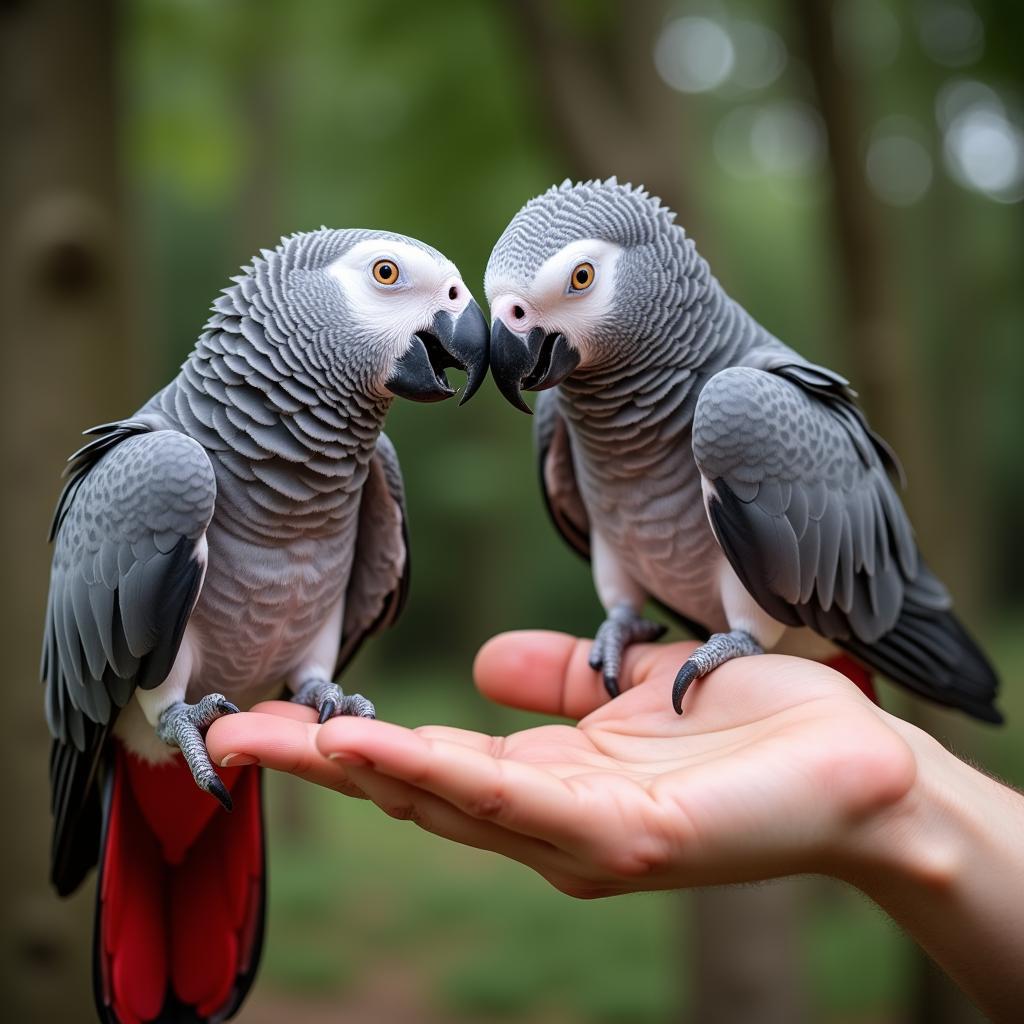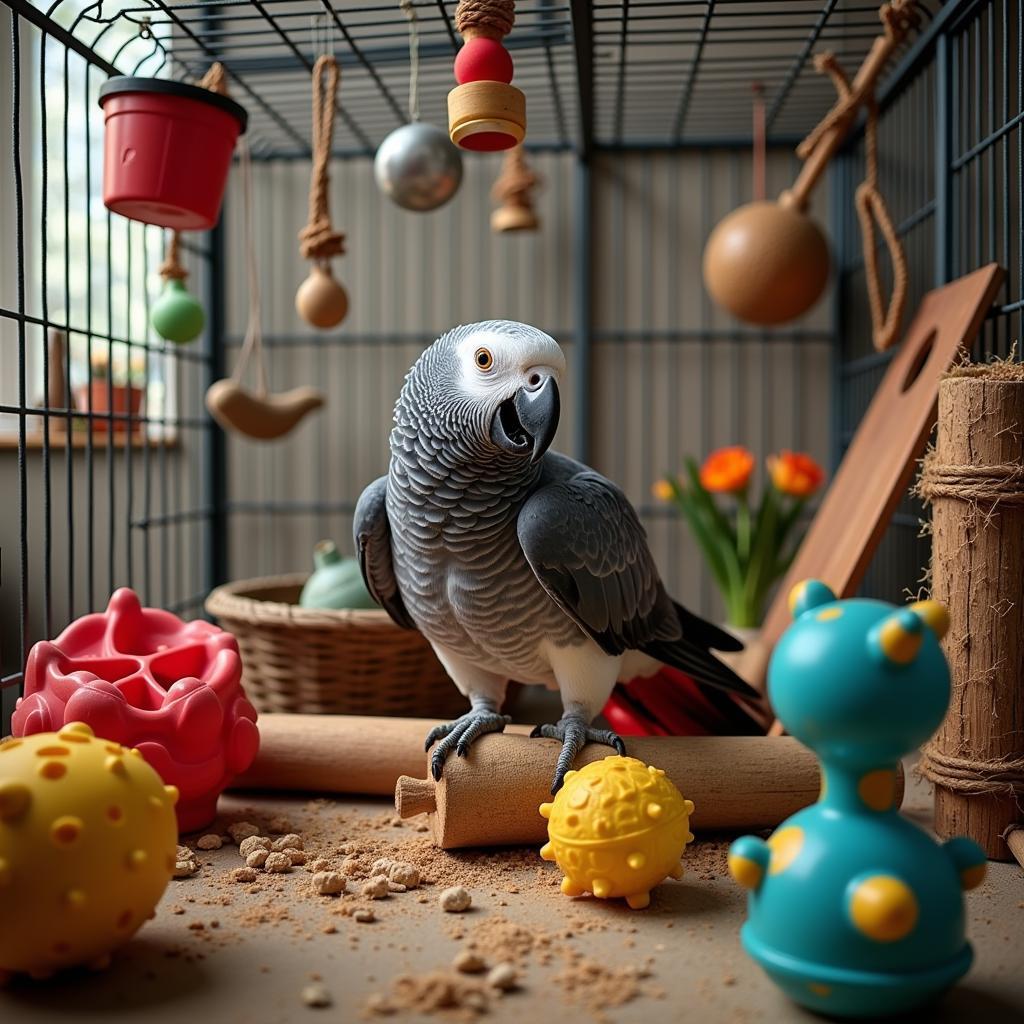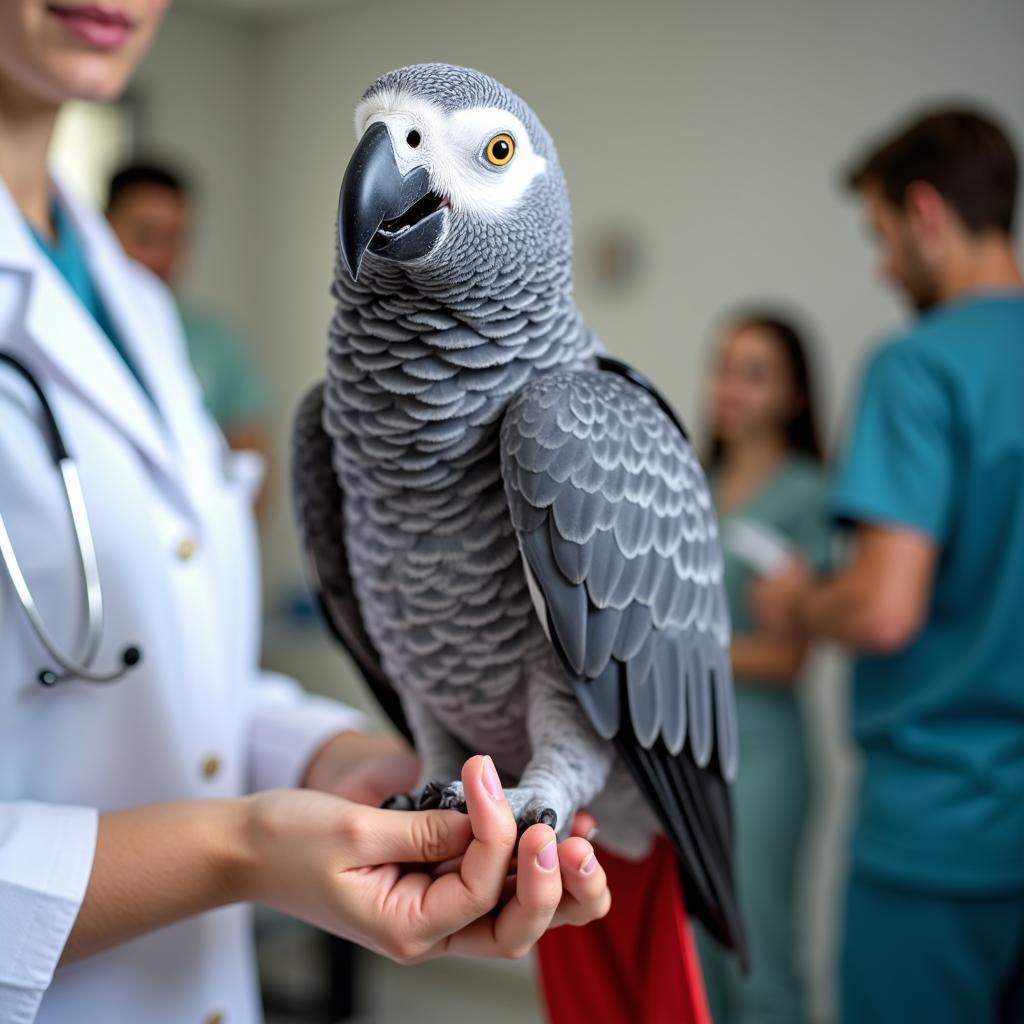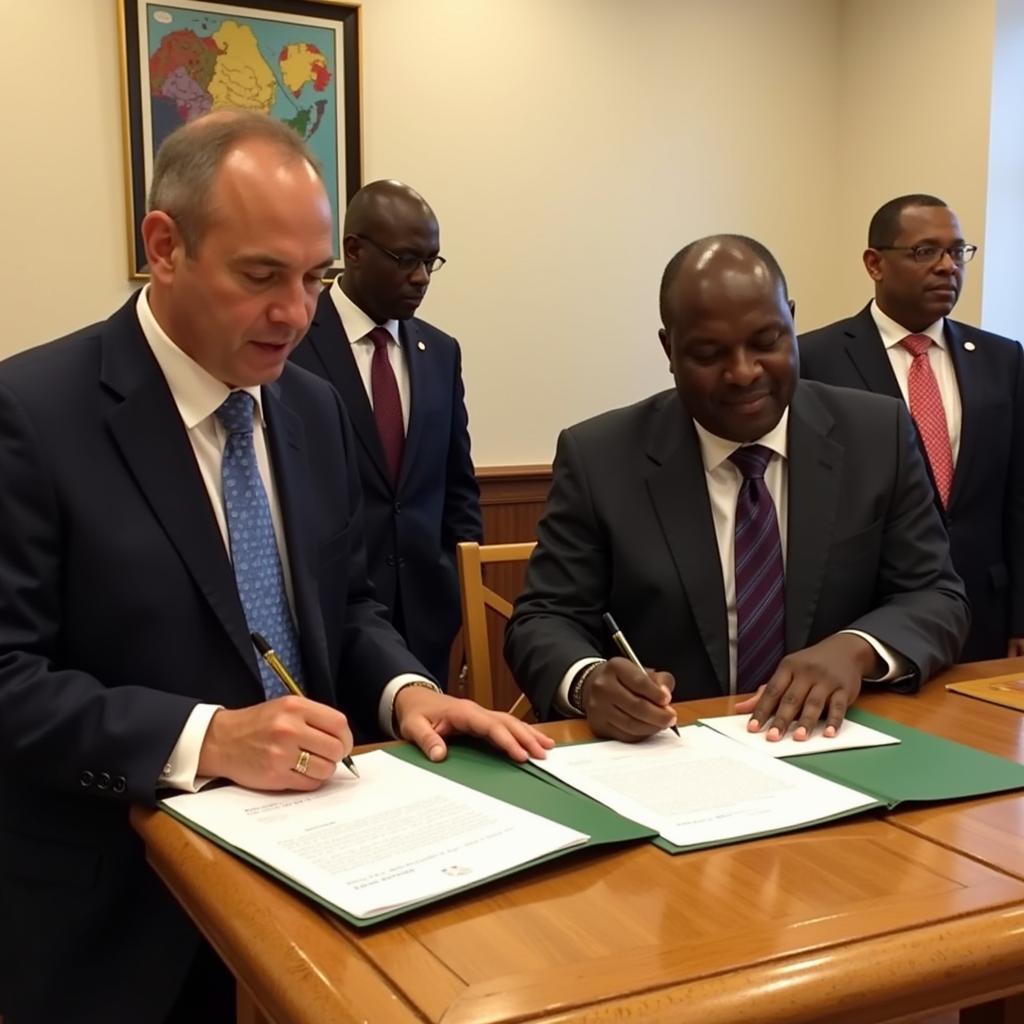The African Grey Parrot in the UK: A Comprehensive Guide
The African Grey parrot, with its striking silver feathers and remarkable intelligence, is a highly sought-after companion bird in the UK. Originating from the rainforests of Central and West Africa, these captivating creatures have charmed their way into homes across the globe. But owning an African Grey parrot in the UK is a significant commitment, requiring a deep understanding of their unique needs and the regulations governing their care. This guide delves into the intricacies of providing a fulfilling life for your African Grey parrot in a UK setting.
Understanding Your African Grey Parrot
Before welcoming an African Grey parrot into your home, it’s essential to appreciate their unique characteristics and needs.
Intelligence and Mimicry
African Greys are renowned for their exceptional intelligence, often compared to that of a human toddler. They are adept at mimicking sounds, including human speech, and can learn a vast vocabulary, sometimes even using words contextually.
Lifespan and Commitment
These parrots boast a long lifespan, often exceeding 50 years in captivity with proper care. This emphasizes the long-term commitment involved in owning an African Grey, as they require consistent attention and care throughout their lives.
Social and Emotional Needs
In their natural habitat, African Greys are highly social creatures, living in flocks and engaging in intricate social interactions. As pets, they require ample social interaction, mental stimulation, and emotional enrichment to thrive.
 African Grey Parrot Interacting with Owner
African Grey Parrot Interacting with Owner
Bringing Your African Grey Parrot Home: Legal Requirements in the UK
The UK has strict regulations concerning the trade and ownership of African Grey parrots to protect them from illegal trafficking and ensure their welfare.
CITES and the Law
The Convention on International Trade in Endangered Species of Wild Fauna and Flora (CITES) Appendix I lists African Grey parrots as endangered. This means their trade is strictly regulated to prevent further endangerment. In the UK, you must ensure your African Grey parrot is from a CITES-registered breeder and comes with the necessary paperwork.
Choosing a Reputable Breeder
Selecting a responsible breeder is crucial for ensuring your African Grey is healthy and well-socialized. A good breeder will prioritize the parrot’s welfare, provide proper care, and offer valuable advice on their upkeep.
Creating the Ideal Environment for Your Parrot
Providing a stimulating and enriching environment is essential for your African Grey parrot’s physical and mental well-being.
The Right Cage
Your parrot’s cage should be spacious enough to allow for comfortable movement and play. Choose a cage made from sturdy, non-toxic materials with appropriately sized bar spacing.
Enriching Toys and Activities
African Greys are intelligent and curious creatures who require plenty of mental stimulation. Provide a variety of toys, such as foraging toys, puzzles, and destructible toys, to keep them entertained and prevent boredom.
A Balanced Diet
A well-balanced diet is crucial for your parrot’s health and longevity. Offer a varied diet consisting of high-quality parrot pellets, fresh fruits, vegetables, and occasional healthy nuts.
 African Grey Parrot Enjoying a Variety of Toys in its Cage
African Grey Parrot Enjoying a Variety of Toys in its Cage
Nurturing the Bond: Building a Relationship with Your African Grey Parrot
Developing a strong bond with your African Grey parrot requires patience, understanding, and consistent positive reinforcement.
Patience and Positive Reinforcement
Building trust takes time. Approach your parrot gently and use positive reinforcement techniques, such as offering treats and verbal praise, to encourage desired behaviors.
Talking and Interaction
African Greys are highly social creatures who crave interaction. Engage in regular conversations with your parrot, even if they don’t mimic words initially.
Common Health Issues in African Grey Parrots
While generally hardy, African Grey parrots are prone to certain health issues, and recognizing the signs early is crucial.
Feather Plucking
Stress, boredom, or underlying medical conditions can lead to feather plucking. Consult an avian veterinarian if you notice your parrot plucking its feathers excessively.
Calcium Deficiency
Calcium deficiency is common in African Greys and can lead to various health problems. Ensure their diet contains sufficient calcium or provide calcium supplements as recommended by a veterinarian.
 African Grey Parrot Perched on Veterinarian's Hand during Checkup
African Grey Parrot Perched on Veterinarian's Hand during Checkup
Conclusion
Owning an African Grey parrot in the UK is an incredibly rewarding experience, offering companionship, amusement, and a unique bond with an intelligent and affectionate creature. By understanding their needs, providing a stimulating environment, and nurturing a loving relationship, you can ensure your African Grey parrot thrives in its UK home. Remember, responsible ownership involves continuous learning and adaptation to meet their evolving needs.
Frequently Asked Questions
1. How much does an African Grey parrot cost in the UK?
Prices for African Grey parrots in the UK can vary depending on factors like the breeder’s reputation and the parrot’s age. On average, you can expect to pay between £800 to £1500.
2. Can African Grey parrots talk?
Yes, African Grey parrots are renowned for their exceptional talking ability. With proper training and socialization, they can develop an extensive vocabulary and even learn to use words in context.
3. What is the lifespan of an African Grey parrot?
African Grey parrots have a long lifespan, often living for 50 years or more in captivity with proper care.
4. What do I feed my African Grey parrot?
A balanced diet for an African Grey parrot includes high-quality parrot pellets, fresh fruits, vegetables, and occasional healthy nuts. Consult an avian veterinarian for a customized diet plan.
5. Are African Grey parrots legal to own in the UK?
Yes, but their trade is strictly regulated under CITES. You must purchase your African Grey from a CITES-registered breeder to ensure legal ownership.
6. Do African Grey parrots need companionship?
Yes, African Grey parrots are highly social creatures. They thrive in environments with ample social interaction, whether from their human companions or other parrots.
7. Where can I find a reputable African Grey parrot breeder in the UK?
Researching online, contacting avian veterinarian associations, and seeking recommendations from experienced parrot owners are good starting points for finding reputable breeders.
For any further assistance, feel free to contact us. Our contact details are as follows: Phone Number: +255768904061, Email: kaka.mag@gmail.com, Address: Mbarali DC Mawindi, Kangaga, Tanzania. We have a 24/7 customer support team ready to help.
You might also be interested in these related articles: [african grey parrot eggs for sale online uk], [common african names], or [african grey parrot tamil].
